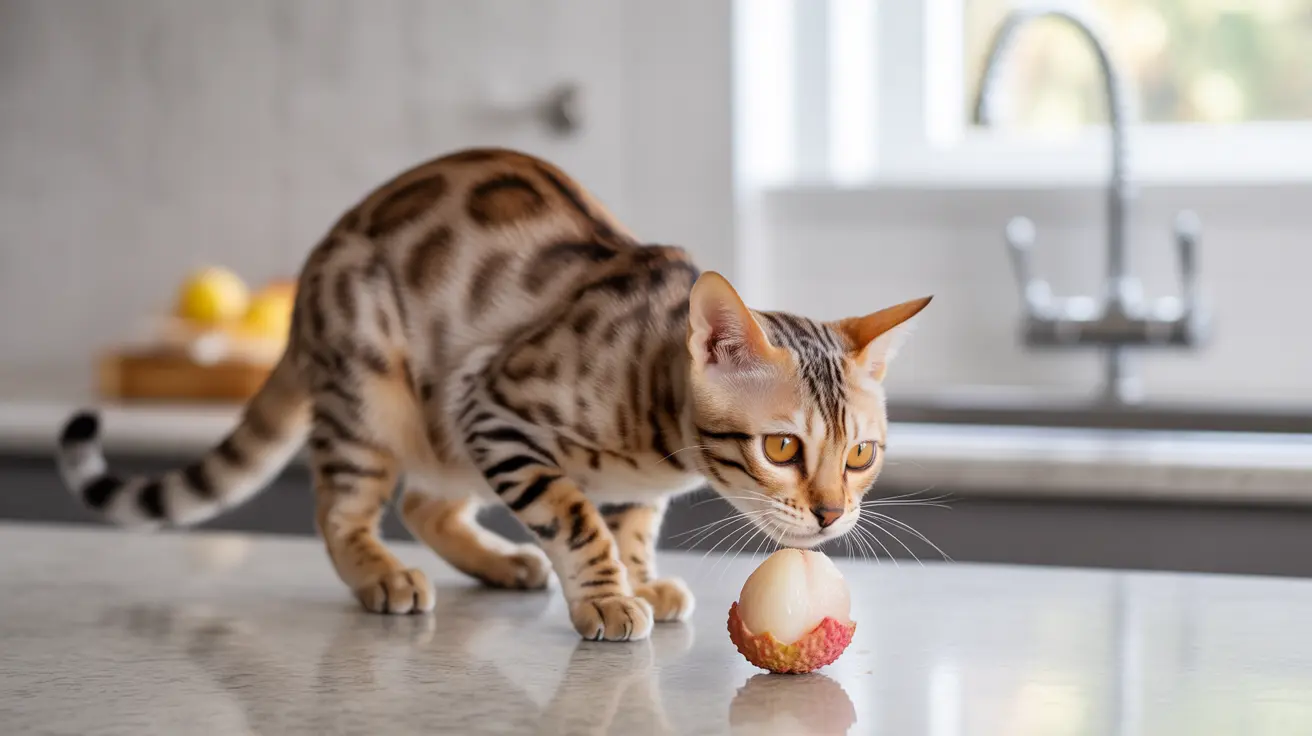As cat owners explore sharing human foods with their pets, questions about exotic fruits like lychee often arise. While the flesh of lychee isn't toxic to cats, there are several important considerations before offering this tropical treat to your feline friend.
In this comprehensive guide, we'll explore the safety of lychee for cats, potential risks, and what you need to know to keep your pet safe if you choose to share this fruit.
Understanding Lychee and Cats' Dietary Needs
Cats are obligate carnivores, meaning their bodies are designed to process and utilize nutrients primarily from animal-based proteins. Unlike humans, cats lack the ability to taste sweetness and don't require fruits in their diet for optimal health.
Lychee, while nutritious for humans, contains high amounts of sugar and carbohydrates that cats' digestive systems aren't equipped to handle effectively.
Safe Parts vs. Dangerous Components
The Edible Flesh
The flesh of ripe lychee is technically safe for cats in very small amounts. However, it should only be offered as an occasional treat, if at all. The high sugar content makes it an unnecessary addition to your cat's diet.
Dangerous Parts to Avoid
Never allow your cat access to:
- Lychee skin (can cause choking and digestive blockages)
- Seeds (contain toxic compounds)
- Unripe lychee
- Large quantities of the fruit
Health Risks and Concerns
Feeding lychee to your cat regularly or in large amounts can lead to several health issues:
- Digestive upset and diarrhea
- Weight gain from excess sugar
- Potential dental problems
- Risk of diabetes with regular consumption
- Possible allergic reactions
Proper Serving Guidelines
If you decide to offer lychee to your cat, follow these strict guidelines:
- Remove all skin and seeds completely
- Offer only a tiny piece (smaller than your fingertip)
- Monitor your cat for any adverse reactions
- Limit treats to less than 10% of daily caloric intake
- Always consult with your veterinarian first
Better Alternatives to Lychee
Instead of lychee, consider these safer options for treating your cat:
- Small pieces of cooked, plain chicken
- Commercial cat treats
- Veterinary-approved dental treats
- Fresh, clean water for hydration
Frequently Asked Questions
Can cats safely eat the flesh of lychee fruit?
Yes, cats can safely eat small amounts of lychee flesh, but only after removing the skin and seeds. However, it's not recommended as a regular treat due to its high sugar content.
Why is it important to remove lychee skin and seeds before giving it to my cat?
The skin presents a choking hazard and can cause digestive blockages, while the seeds contain toxic compounds that could harm your cat. Only the flesh is safe for consumption.
What are the health risks for cats eating lychee regularly or in large amounts?
Regular consumption of lychee can lead to obesity, diabetes, dental problems, and digestive issues due to its high sugar content. It may also cause allergic reactions in some cats.
How can I introduce lychee to my cat without causing allergies or digestive problems?
Start with a tiny piece of flesh and monitor your cat for 24 hours for any adverse reactions. Always consult your veterinarian before introducing new foods to your cat's diet.
Are there any nutritional benefits of lychee for cats, or is it just a sugary treat?
While lychee contains vitamins and antioxidants beneficial to humans, cats don't require these nutrients from fruit sources. Their complete nutrition should come from high-quality cat food.
Remember, while lychee flesh isn't toxic to cats, it's not a necessary or particularly beneficial treat for them. Focus on providing your cat with a balanced, species-appropriate diet, and consult with your veterinarian about the best treats for your specific pet.






